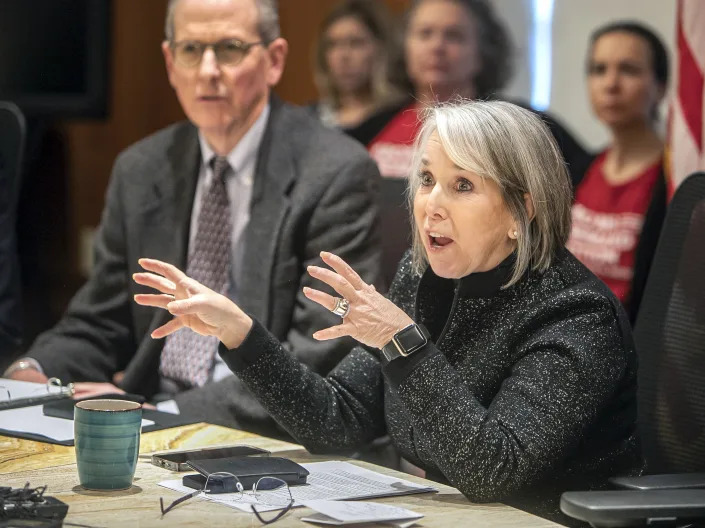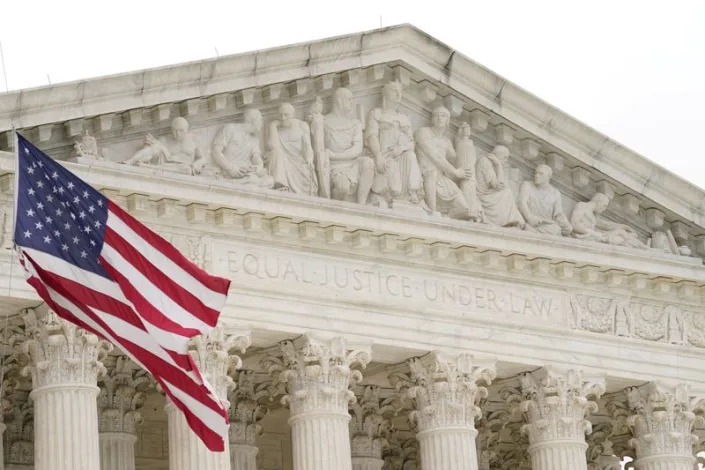Vivian Song
Tue, February 21, 2023

Emmanuel Macron visits an early morning market, saying: 'If we want to preserve a pay-as-you-go system, we have to work longer' - Benoit Tessier/AFP via Getty Images
Emmanuel Macron has visited an early morning market to extol the value of hard work and getting up early, as he launched a public relations campaign to build support for his controversial pension reforms.
The French president chatted with butchers and cheesemongers at the Rungis International Market, one of the world’s largest wholesale markets, as part of a public messaging campaign aimed at recognising the country’s hardest workers.
Mr Macron defended his reforms, which raise the retirement age from 62 to 64, but admitted that working longer “doesn’t make anyone happy”.
“As we are living longer, there is no miracle. If we want to preserve a pay-as-you-go system, we have to work longer. I’m not saying it makes us happy, it doesn’t make anyone happy,” he said.
Appealing to the French people’s good “common sense”, Mr Macron reiterated that in order to address pension deficits in the future “we have to work a little longer”.
He added: “Over a reassuring lie, I prefer the anger-raising truth.”
The 45-year-old posed with a chicken carcass and donned a white butcher’s apron with a badge saying “Love meat, eat better”.

Mr Macron spoke to butchers at cheesemongers at the Rungis International Market - Benoit Tessier/AFP via Getty Images
One butcher, José Graca, 54, said he wanted to retire as soon as possible to “take advantage of my grandchildren”.
“Sixty is reasonable to retire,” he added, saying he wanted to “make young people work”.
The Rungis visit marks the first time the president has made a public appearance in relation to the pension reforms since they were unveiled last month.
The Bill was discussed in the lower parliament during two weeks of tumultuous and unproductive debates, hampered by 20,000 amendments put forth by the opposition parties. It will be examined in the Senate without a vote next month.
Mr Macron openly acknowledged that the PR visit is modelled upon the strategy of his predecessor Nicolas Sarkozy, whose 2007 presidential campaign also honoured the “France which gets up early” with a visit to the Rungis market.

The French president faces widespread opposition to his pension reforms - Benoit Tessier/AFP via Getty Images
In response to a veal butcher who complained that France’s generous social welfare programs were to blame for the shortage of manpower, Mr Macron said: “I do not believe we need fewer social services. Work must continue to finance the system.”
During his four-hour visit, Mr Macron reiterated his message about the need to work longer in order to create more wealth for the country and fund ailing health and education systems.
The president also spoke about the need to re-examine the definition of work in France.
“The real debate that we must have in society is work,” he said. “It is work that allows us to build our future, that of our family.”
He added that it must continue to be better paid and that people “must continue to adapt careers”.
Mr Macron’s next pension-related public appearance is set for this weekend at France’s largest agricultural salon in Paris.
















